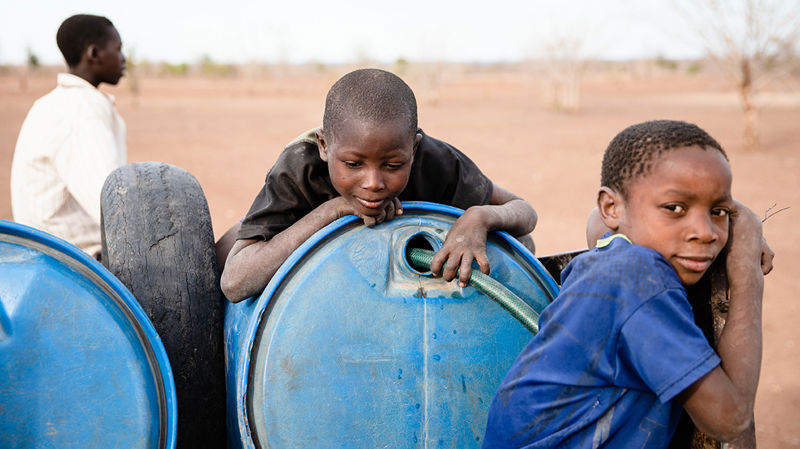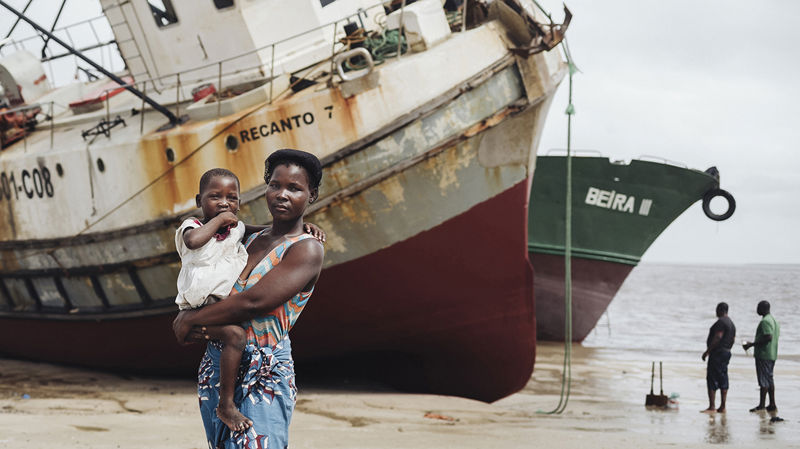The Red Cross compiles information about climate risks

The Finnish Red Cross has compiled information on the impacts of climate change on people’s health and food security in Africa and Asia.
At the initiative of the Finnish Red Cross, the IFRC Climate Centre has produced 11 assessments of how climate change is affecting people’s health in Asia and Africa.
In Africa, assessments were conducted on Kenya, Ethiopia and Malawi. In Asia, the assessments also examined the impacts of climate change on water supplies and people’s livelihood in addition to health. The analyses covered Afghanistan, Fiji, East-Timor, the Maldives, Mongolia, Myanmar, Nepal and Pakistan.
In addition, the Finnish Red Cross has also commissioned a working paper from the IFRC Climate Centre that describes measures for improving food security in southern Africa as the climate changes. The working paper includes assessments of climate risks for ten countries in southern Africa.
The assessments were carried out with funding from the Ministry for Foreign Affairs of Finland.
11 assessments on the health impacts of the changing climate
The country assessments commissioned by the Finnish Red Cross present research findings on the impact of climate change on people’s health and describe forecasts of climate change trends in different areas. The country analyses describe groups that are particularly vulnerable in terms of surviving the consequences of climate change.
Climate change is closely linked to the occurrence of infectious diseases, for example, but it also impacts reproductive health, nutrition and mental health. It will also make it more difficult for people to access health services.
Climate change causes changes in ecosystems, which in turn affect the spread of diseases as well as crops and water supplies.
The results of the analyses will be utilised in future international aid programmes. The aim is to mitigate and, where possible, prevent the health impacts of climate change.
The research materials are based on a literature review and interviews. Due to the COVID-19 pandemic, the interviews were conducted primarily virtually.
The framework of the research was based on documents from the World Health Organization (WHO) and the assessment report of the Intergovernmental Panel on Climate Change (IPCC).
The International Federation of Red Cross and Red Crescent Societies (IFRC) and the Red Cross Climate Centre organised workshops presenting the results of the assessments in Asia and Africa.
See the reports
- RCRC_IFRC-Country-assessments-Afghanistan-Final.pdf
- RCRC_IFRC-Country-assessments-Ethiopia-Final.pdf
- RCRC_IFRC-Country-assessments-Fiji-Final.pdf
- RCRC_IFRC-Country-assessments-Kenya-Final.pdf
- RCRC_IFRC-Country-assessments-Malawi-Final.pdf
- RCRC_IFRC-Country-assessments-Maldives-Final.pdf
- RCRC_IFRC-Country-assessments-Mongolia-Final.pdf
- RCRC_IFRC-Country-assessments-Myanmar-Final.pdf
- RCRC_IFRC-Country-assessments-Nepal-Final.pdf
- RCRC_IFRC-Country-assessments-Timor-Leste-Final.pdf
- RCRC_IFRC-Country-assessments-Pakistan-Final.pdf
Information for improving food security
In addition to the aforementioned assessments, the Finnish Red Cross has commissioned a working paper from the IFRC Climate Centre that describes measures for improving food security in southern Africa as the climate changes.
The working paper includes country-specific assessments of climate risks for ten countries in southern Africa.
The study seeks answers to the questions of how well community-based development measures can strengthen the community’s resilience with regard to sustainable food security and which operating models and tools are the best for grassroots-level work by the Red Cross specifically.
Food security can also be improved by ensuring support for farmers during crisis situations, strengthening local safety nets or promoting insurance policies, for example.
Focusing on proactive action and making better use of weather services in both preparedness and cultivation makes it possible to minimise crop losses, for example.
Various cultivation techniques and locally sustainable solutions can be used to improve self-sufficiency, resilience and livelihoods, particularly if the rights to land and access to the market are promoted more broadly at the same time.
The aim of the country-specific climate risk assessments is to present a broad climate profile that lays out the general climate conditions and climate models of each country.
Research data and modelling were utilised in the assessments. In addition to research data, it is important to create networks and make use of country-specific expertise as well as the skills and historical knowledge of local people.
See the reports
- SA Food Security Study Finnish Red Cross_Final (Bailey et al 2021).pdf
- Climate Profiles of Countries in Southern Africa (Angola).pdf
- Climate Profiles of Countries in Southern Africa (Botswana).pdf
- Climate Profiles of Countries in Southern Africa (Eswatini).pdf
- Climate Profiles of Countries in Southern Africa (Lesotho).pdf
- Climate Profiles of Countries in Southern Africa (Malawi).pdf
- Climate Profiles of Countries in Southern Africa (Mozambique).pdf
- Climate Profiles of Countries in Southern Africa (Namibia).pdf
- Climate Profiles of Countries in Southern Africa (South Africa).pdf
- Climate Profiles of Countries in Southern Africa (Zambia).pdf
- Climate Profiles of Countries in Southern Africa (Zimbabwe).pdf

The international aid of the Red Cross
